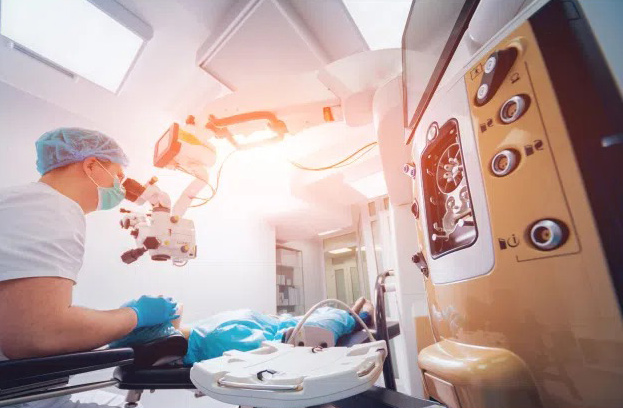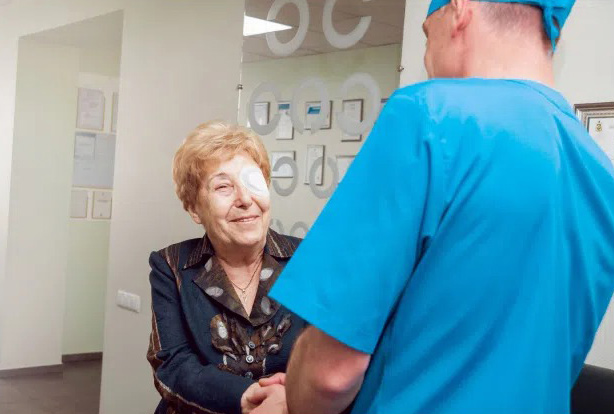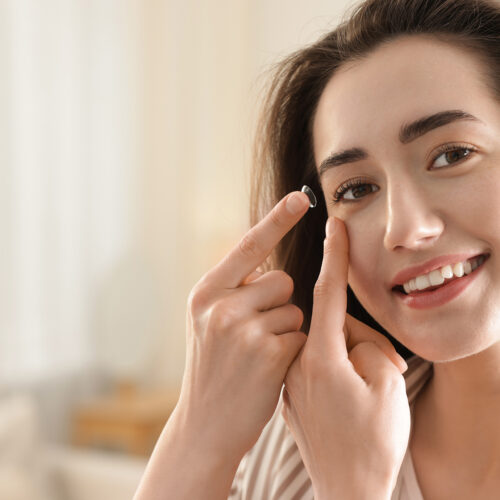Cataract surgery is a safe and routine procedure, offering life-changing improvements in vision for many people. But once the operation is over, a common concern for patients is the recovery timeline.
The answer can vary depending on your overall health, the complexity of the surgery, and how well you follow post-operative care instructions.
What Affects Your Cataract Surgery Recovery Time?
While the general recovery timeline applies to most patients, individual healing times can vary. Several factors may influence how quickly you recover and when you can return to normal activities:
Your overall health – People in good general health may recover more quickly, while those with conditions like diabetes or autoimmune disorders may experience a slower healing process.
Complexity of the procedure – If your cataract was advanced or if there were complications (e.g. dense cataracts, previous eye surgeries), you might require more time to heal.
Other eye conditions – Co-existing eye conditions like glaucoma or macular degeneration can affect healing and visual outcomes.
Adherence to aftercare – Following your ophthalmologist’s aftercare instructions closely (including proper use of prescribed eye drops and attending all follow-up visits) can significantly improve the speed and quality of your recovery.
Age – While cataract surgery is safe for older adults, age-related changes in healing and eye health can play a role in the recovery pace.
Your cataract surgeon, Dr. Kumar will provide guidance tailored to your specific situation, including when it’s safe to resume certain activities like driving, exercising, or returning to work.

Cataract Surgery Recovery Timeline
First 24–48 Hours: Initial Adjustment
In the first day or two, your eye will begin to adjust to the artificial lens. It’s not unusual to experience some mild discomfort, a gritty sensation, blurry vision, or light sensitivity. These symptoms usually subside quickly. Most patients can see some improvement in vision as early as the next day.
While you might feel well enough to resume light tasks, it’s still important to rest and avoid any unnecessary strain on your eyes during this early period.
First Week: Gradual Improvement
Over the first week, vision continues to improve as inflammation reduces. Any redness or irritation should start to settle. You’ll be using prescribed eye drops to aid healing and prevent infection or inflammation. Avoiding activities like swimming, heavy lifting, and eye makeup is strongly recommended during this phase.
Some people return to work within 2–3 days, depending on their job. However, it’s best to wait for your ophthalmologist’s advice before resuming activities such as driving or computer work.
2 to 6 Weeks: Full Recovery
By week two, most of the post-operative discomfort has usually disappeared, and your vision is much clearer. However, the eye continues to heal internally over the next few weeks.
Most people achieve complete healing within four to six weeks. During this time, you’ll attend one or more follow-up appointments to monitor your progress. If you wear glasses, you may need a new prescription after recovery is complete.

Cataract Surgery Aftercare: What You Need to Know
Successful healing depends not only on the cataract surgery itself but also on how well you care for your eye afterward. Following your ophthalmologist’s instructions can significantly reduce the risk of complications and support faster healing.
Key aftercare measures include:
- Using prescribed eye drops exactly as directed
- Wearing protective eye shields when sleeping (usually for a few nights to a week)
- Avoiding rubbing or pressing on your eye
- Staying away from swimming pools, spas, and saunas for at least 3 weeks
- Protecting your eye from dust, wind, and bright sunlight with sunglasses
- Keeping follow-up appointments even if you feel your vision is back to normal
Any sudden change in vision, increased pain, persistent redness, or the appearance of floaters or flashes should be reported immediately.
When Can I Resume Everyday Activities?
Many patients want to know when they can get back to daily routines. While recovery from cataract surgery is relatively quick, certain activities should still be avoided until your eye is fully healed to reduce the risk of complications. The table below outlines typical recovery timelines for common activities. Do note, however, that this is just a guide and it’s recommended to always follow your ophthalmologist’s personalised advice:
| Activity | Estimated Wait Time |
|---|---|
| Light housework | 1 – 2 days |
| Driving | 2 – 3 days (after medical clearance) |
| Office work | 2 – 3 days |
| Exercise | 1 – 2 weeks (start with light activities) |
| Swimming | At least 3 – 4 weeks |
| Wearing eye makeup | After 2 weeks (confirm with your ophthalmologist) |
How To Book an Assessment
To request an appointment or if you have an enquiry, please contact us via the following ways:
Call or message us: +612 9222 9188
Email us: reception@visionclinicsydney.com.au
Book online via our website
FAQs
How long does it take to recover from cataract surgery completely?
Most people recover fully within 4–6 weeks. While vision often improves in a few days, the eye continues healing internally for several weeks after surgery.
Can I drive after cataract surgery?
You may be able to drive within a few days, but only once your ophthalmologist confirms your vision is safe for driving. Avoid driving until you receive medical clearance.
When can I return to work?
If your job is not physically demanding or vision-intensive, you might return within 2–3 days. However, those with roles requiring precise visual focus may need a longer recovery period before returning.
Do I need glasses after cataract surgery?
It depends. Many people still require reading glasses or distance glasses after surgery, depending on the type of intraocular lens implanted. You’ll likely be assessed for a new prescription once your eye has fully healed.
What happens if I rub my eye accidentally after surgery?
Rubbing your eye can increase the risk of complications. If you do it once gently by accident, it’s usually okay, but let your ophthalmologist know if you feel discomfort afterward.
General Information Disclaimer: The content provided here is for informational purposes only and is not intended as medical advice, diagnosis, or treatment. Always seek the advice of your health professional with any questions you may have regarding a medical condition. The information on this site is general in nature and may not reflect current medical developments or research. Your reliance on any information provided by this site is solely at your own risk.

























